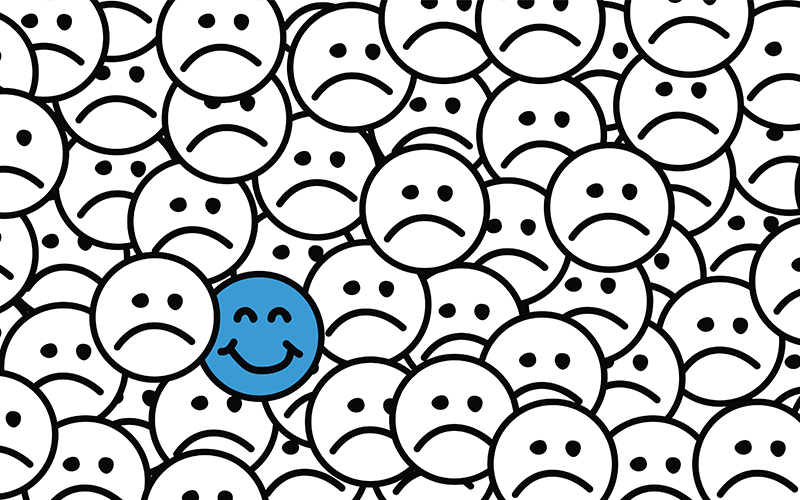Understanding Blue Monday
Blue Monday, typically marked on the third Monday of January, has garnered a reputation as the ‘most depressing day of the year’. This concept was initially introduced in 2005 as part of a marketing campaign by Sky Travel. Dr. Cliff Arnall, a former tutor at Cardiff University, devised a formula considering factors like weather conditions, debt levels post-Christmas, time since failing New Year’s resolutions, and low motivational levels.
The history behind Blue Monday
Blue Monday, though initially a marketing ploy, has evolved into a broader discussion about mental health, particularly during winter. The formula, while not scientifically rigorous, underscored real issues such as Seasonal Affective Disorder (SAD) and post-holiday financial strains. It highlighted how various factors converge in January to potentially lower mood levels.
The importance of its message
While the scientific basis of Blue Monday is debatable, its underlying message resonates significantly. It opens up vital discussions about mental health, especially in educational environments where students may face stress, anxiety, and seasonal mood changes. Recognising Blue Monday serves as a reminder to check in on our mental well-being and that of those around us.
Overcoming your Blue Monday blues
- Embrace nature: Engage with the outdoors, even in winter. Natural light, even on cloudy days, can improve mood and energy levels.
- Stay active: Physical activity is a proven mood booster. A brisk walk, yoga session, or any form of exercise can elevate endorphin levels.
- Connect with others: Reach out to friends, family, or peers. Social connections are crucial for mental well-being.
- Mindfulness and relaxation: Practices like meditation, deep breathing exercises, or even a relaxing bath can reduce stress and improve your mood.
- Healthy eating: Nutritious food can have a positive impact on your mood. Incorporating fruits, vegetables, and whole grains into your diet is beneficial.
- Pursue a hobby: Engaging in activities you enjoy can be a great escape and provide a sense of accomplishment.
- Seek professional help: If feelings of sadness or anxiety are overwhelming, it’s important to seek support from mental health professionals.
Final thoughts
While Blue Monday may have started as a marketing gimmick, it has evolved into an annual reminder
to reflect on our mental health and the importance of self-care. This day serves as a prompt to take proactive steps towards managing stress, embracing positivity, and understanding our emotional needs. By recognising and addressing the ‘winter blues’, we can transform Blue Monday into an opportunity for personal growth and well-being.
As students, balancing academic pressures with personal challenges, acknowledging the significance of days like Blue Monday is crucial. It’s a chance to break the stigma around mental health discussions and encourage a culture of support and understanding. Remember, it’s okay to not feel okay, and reaching out for help is a sign of strength, not weakness.
Blue Monday, in its essence, is a call to action – to prioritise mental health, foster resilience, and cultivate joy, even amidst the darkest days of winter. Let’s use this day to not only acknowledge our struggles but also to celebrate our ability to overcome them. Together, we can beat the Blue Monday blues and set a positive tone for the rest of the year.
Helpful resources:
- Mental health support: Contact university counselling services or local mental health organisations for guidance and support.
- Physical wellness: Join campus fitness programmes or local sports clubs to stay active.
- Social activities: Participate in student clubs or community groups to build connections and support networks.
- Mindfulness apps: Utilise digital resources for meditation and mindfulness practices.
- Nutritional advice: Seek advice from campus health services for a balanced diet plan.
In the end, while Blue Monday may be a concept rooted in pseudoscience, it provides a timely reminder about the importance of mental health and well-being, especially in the educational community. By taking proactive steps and supporting each other, we can turn Blue Monday into a day of positive action and empowerment.




